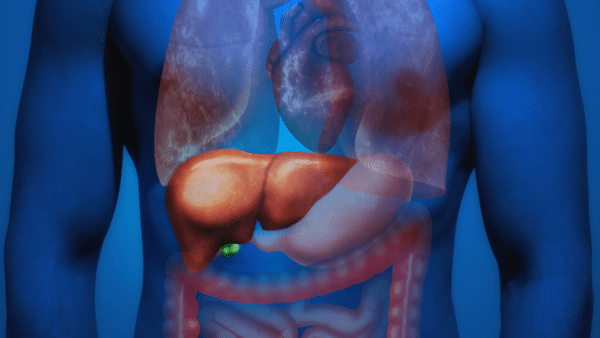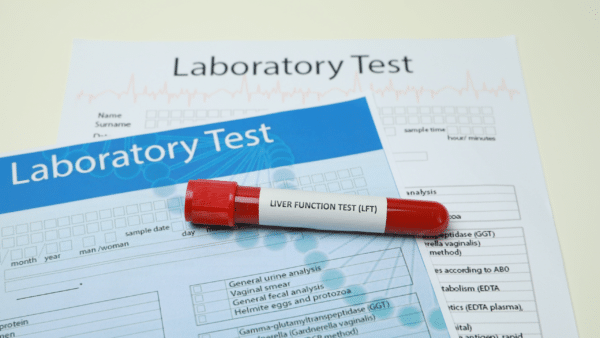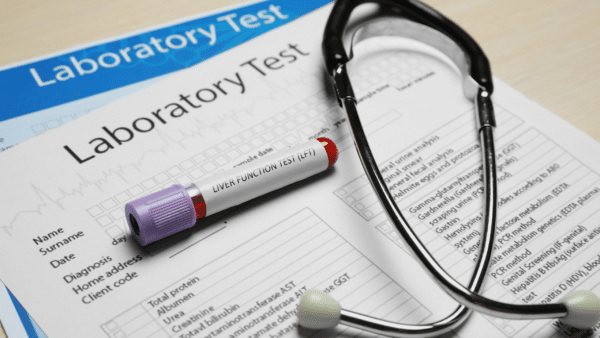Your Liver: The Unsung Hero
Your liver is kind of like your body’s unsung hero. This powerhouse organ silently toils away, filtering toxins, aiding digestion, and performing other vital functions. But much like any overworked and underappreciated employee, your liver can get overwhelmed, especially when bombarded with excessive amounts of alcohol. This is where alcoholic liver disease (ALD) comes in, a spectrum of liver damage caused by heavy drinking.
Let’s face it: most of us enjoy a glass of wine or a good beer now and then. But before we dive into the signs of ALD, it’s crucial to understand risky drinking habits. The National Institute on Alcohol Abuse and Alcoholism (NIAAA) defines heavy drinking as the consumption of over 15 drinks per week for men and over eight drinks per week for women, according to their guidelines. A binge is defined as consuming five or more drinks for men and four or more drinks for women within two hours. These guidelines are a good starting point to assess your own alcohol consumption and identify if it might be placing your liver at risk.
It’s important to know that ALD affects millions of people globally. In the United States alone, an estimated 2.5 million adults have chronic liver disease linked to alcohol, with new cases reported every year (CDC, 2021). While alarming, this statistic also emphasizes the importance of early detection and treatment. So, how do you know if your liver might be sending out distress signals?

Understanding the Early Warning Signs
Unlike a flat tire screaming for attention, ALD signs and symptoms can be very subtle, especially in the early stages. However, your body does try to communicate, and it’s crucial to listen. Here are some common early signs to watch out for:
Here’s the expanded table with the additional symptoms and their descriptions:
| Symptom | Description |
|---|---|
| General Fatigue | Feeling constantly drained and sluggish, even after a good night’s sleep, can be a red flag. |
| Loss of Appetite and Weight Loss | This often happens because the body doesn’t have the energy or desire to process food as efficiently, leading to unintentional weight loss. |
| Abdominal Pain and Discomfort | A persistent dull ache or tenderness in the upper right abdomen, where your liver is located, can be a sign of inflammation. |
| Nausea and Vomiting | These can occur due to various reasons, but if they become frequent and unexplained, it’s essential to get checked by a doctor. |
| Difficulty Sleeping and Concentration | These can arise due to the body’s struggle to balance its processes while dealing with the effects of alcohol. |
| Digestive Issues | Your digestive system also plays a role in communication. Here are some digestive signs that shouldn’t be ignored. |
| Changes in Bowel Habits | Diarrhea or constipation that persists can be a sign of the digestive system being thrown off balance by the liver’s struggles. |
| Tarry, Dark Stools or Blood in the Stool | This can be a more severe sign of internal bleeding and requires immediate medical attention. |
| Indigestion and Heartburn | This discomfort can arise because of the liver’s reduced ability to break down certain foods, leading to heartburn or indigestion. |
| Changes in Skin and Appearance | Your skin can also act as a window into your liver’s health. |
| (Jaundice) Yellowing of the Skin and Whites of the Eyes | This happens because of a buildup of bilirubin, a yellowish waste product, in the bloodstream due to a malfunctioning liver. |
| Easy Bruising and Bleeding | This can occur because the liver plays a very crucial role in clotting the blood, and its impairment can lead to easier bruising and bleeding. |
| Spider Angiomas | Yellowing of the skin and whites of the eyes, also known as jaundice, is a medical condition that occurs when there is an excess of bilirubin in the blood. This can be a sign of liver dysfunction or other underlying health issues and requires prompt medical attention. |
| Loss of Muscle Mass | This can occur as the body struggles to maintain its protein balance due to the liver’s compromised function. |

Advanced Signs of ALD
While the above symptoms tend to occur in the early stages, if left unchecked, ALD can progress, leading to more severe and potentially life-threatening complications. These typically manifest later and require immediate medical attention:
Fluid Buildup
Swelling in the Abdomen (Ascites)
This occurs when fluid accumulates in the abdomen due to the liver’s inability to regulate blood pressure properly.
Swelling in the Legs and Ankles (Edema)
This condition is characterized by the leakage of fluid from the blood vessels into the surrounding tissues, leading to the swelling.
Brain Dysfunction
Confusion and Disorientation
This arises as the liver struggles to remove toxins from the bloodstream, leading to their buildup in the brain and affecting its functionDifficulty Thinking and Concentrating: Similar to confusion, this happens due to the brain being deprived of essential nutrients and struggling to function properly.
Personality Changes and Mood Swings
These can occur due to the impact of toxins on the brain, leading to irritability, depression, or anxiety.
Hepatic Encephalopathy
This is a severe complication arising from a buildup of toxins in the brain, causing altered consciousness, slurred speech, and even coma.
Internal Bleeding
This is a life-threatening complication that can occur due to increased pressure in the portal vein, a major blood vessel leading to the liver. This pressure can cause the vein to rupture, leading to internal bleeding that manifests as vomiting blood or blood in the stool.

The Importance of Early Diagnosis and Treatment
The good news is that ALD is treatable, and the earlier it’s diagnosed, the better. If you experience any of the above symptoms, seeking professional medical help is crucial. Early diagnosis can help prevent further damage and improve your overall health and well-being. Doctors can use various tools to diagnose ALD, including:
Blood Tests
These can measure liver function and detect abnormalities in enzymes and proteins.
Imaging Tests
These can provide a visual of the liver and identify any issues like scarring or inflammation.
Treatment for ALD primarily focuses on stopping alcohol consumption. This allows the liver time to heal and repair itself. However, depending on the severity of the damage, additional medications or procedures might be necessary. Remember, quitting alcohol is the most critical step in preventing further liver damage and improving your overall health.

More About Liver Blood Tests
While not a perfect tool for diagnosing ALD on its own, a liver blood test can be a valuable early warning sign. These tests measure the levels of specific enzymes and proteins produced by your liver. When the liver is healthy, these enzymes and proteins are present within a normal range. However, when the liver is damaged or under stress, the levels of these substances can fluctuate, potentially indicating an issue.
Here’s how these tests can serve as early warnings:
Elevated enzyme levels
Certain enzymes, like ALT (alanine aminotransferase) and AST (aspartate aminotransferase), are released into the bloodstream when liver cells are damaged. A significant rise in these enzymes can be an indicator of potential liver inflammation or injury.
Abnormal bilirubin levels
Bilirubin is a yellowish waste product produced by the breakdown of red blood cells. Typically, the liver filters and removes bilirubin from the bloodstream. However, if the liver is not functioning optimally, bilirubin levels can skyrocket, leading to a condition called jaundice, where the skin and whites of the eyes appear yellow.
Abnormal protein levels
The liver plays a crucial role in protein production. A liver function test can also measure the levels of specific proteins, such as albumin and globulin. Abnormalities in these levels can suggest potential liver problems.
It’s important to understand that elevated levels don’t always signify ALD. Various factors, including certain medications, viral infections, or even fatty liver disease, can also cause these changes. However, a liver function test, along with other medical history and symptom analysis, can be a starting point for your doctor to explore potential causes and take necessary steps for further diagnosis and treatment.
Remember, early detection is critical for managing ALD effectively. If you have any concerns about your alcohol consumption or experience any potential symptoms, scheduling a liver function test with your doctor can be a proactive step toward safeguarding your health.
The Comprehensive Metabolic Panel (CMP-14) with EGFR Blood Test is a diagnostic tool that measures 14 different substances in the blood to evaluate the body’s chemical balance and metabolism. It is used to assess overall health, particularly focusing on kidney and liver function, as well as nutrient levels. This test is essential for diagnosing and monitoring conditions such as diabetes, kidney disease, and liver disease.
Components of the CMP-14 with EGFR Blood Test
The Comprehensive Metabolic Panel (CMP-14) with EGFR Blood Test is a diagnostic tool that measures 14 different substances in the blood to evaluate the body’s chemical balance and metabolism. It is used to assess overall health, particularly focusing on kidney and liver function, as well as nutrient levels. This test is essential for diagnosing and monitoring conditions such as diabetes, kidney disease, and liver disease.
Checklist of What the Test Offers:
- Glucose: Blood sugar level, essential for diabetes screening and management.
- Kidney Profile:
- Bun or Urea Nitrogen (BUN): Indicates kidney function.
- Creatinine, Serum: Another indicator of kidney function.
- Bun/Creatinine Ratio: Can suggest conditions like dehydration or intestinal bleeding.
- Estimated Glomerular Filtration Rate (eGFR): Assesses kidney function to determine the stage of kidney disease and detect early damage.
- Liver Panel:
- Protein, Total: Reflects liver and kidney function and nutritional health.
- Albumin Serum: A major protein necessary for liver and kidney health.
- Globulin, Total: A major protein involved in clotting and immune response.
- Albumin/Globulin Ratio: Helps diagnose various liver problems.
- Bilirubin, Total: Helps detect liver and blood disorders; high levels can cause jaundice.
- Alkaline Phosphatase: Indicates bone disorders and liver disease.
- Aspartate Aminotransferase (AST or SGOT) and Alanine Aminotransferase (ALT or SGPT): Enzymes that evaluate liver function; high levels indicate liver damage.
- Fluids & Electrolytes:
- Sodium, Potassium, Chloride: Essential electrolytes for water balance and nerve/muscle function.
- Carbon Dioxide, Total: Monitors electrolyte imbalances.
- Calcium: Essential for bones, teeth, muscle, nerve, and blood clotting functions.
This panel is particularly recommended for routine health screenings or if symptoms indicative of kidney, liver, or metabolic disorders are present.

Conclusion
Your liver is a resilient organ, but even the strongest heroes need a break. By understanding the signs of ALD and being mindful of your alcohol consumption, you can empower yourself to take charge of your health. Remember, early detection is critical, so pay attention to your body’s signals and seek professional help if needed. With the proper support, you can give your liver the opportunity to heal and continue performing its vital functions for many years to come.
Additional Resources
- National Institute on Alcohol Abuse and Alcoholism (NIAAA): https://www.niaaa.nih.gov/
- Centers for Disease Control and Prevention (CDC): https://www.cdc.gov/hepatitis/hbv/index.htm
- American Liver Foundation: https://liverfoundation.org/
Remember: This information is not intended to replace professional medical advice. Always consult with a healthcare professional for any questions or concerns related to your health.

